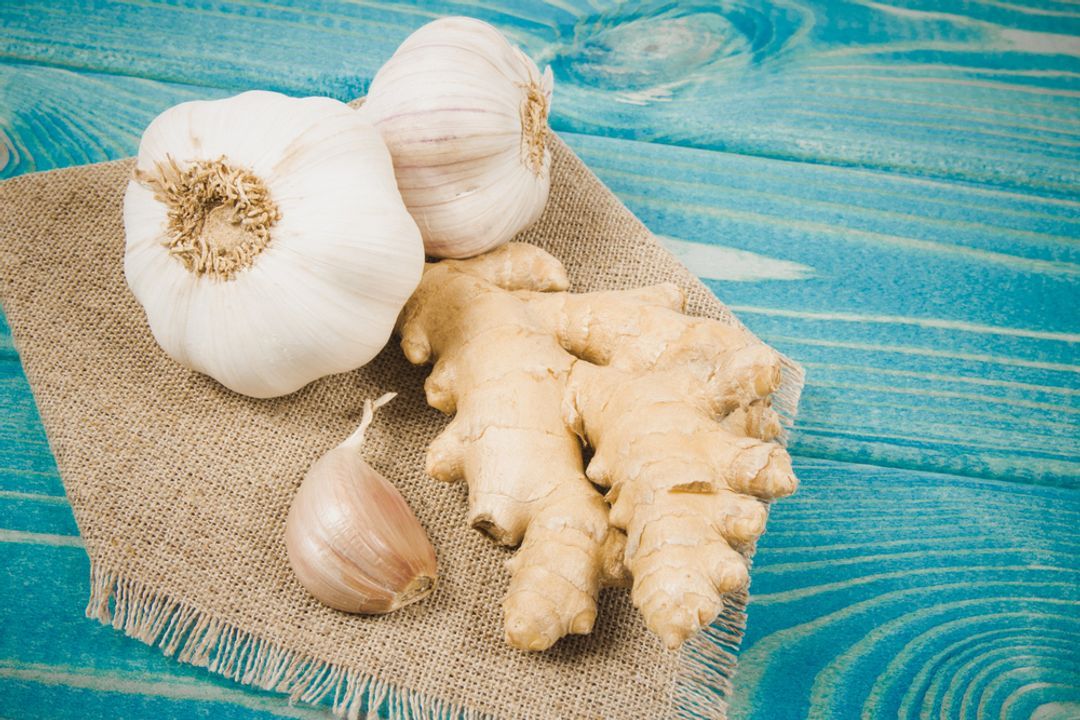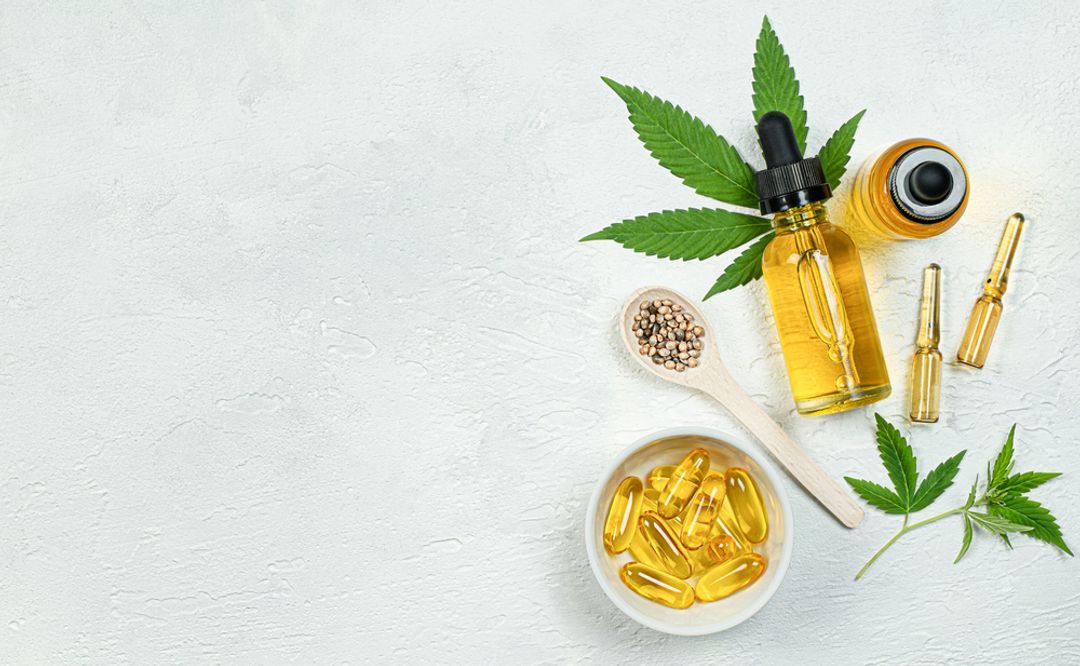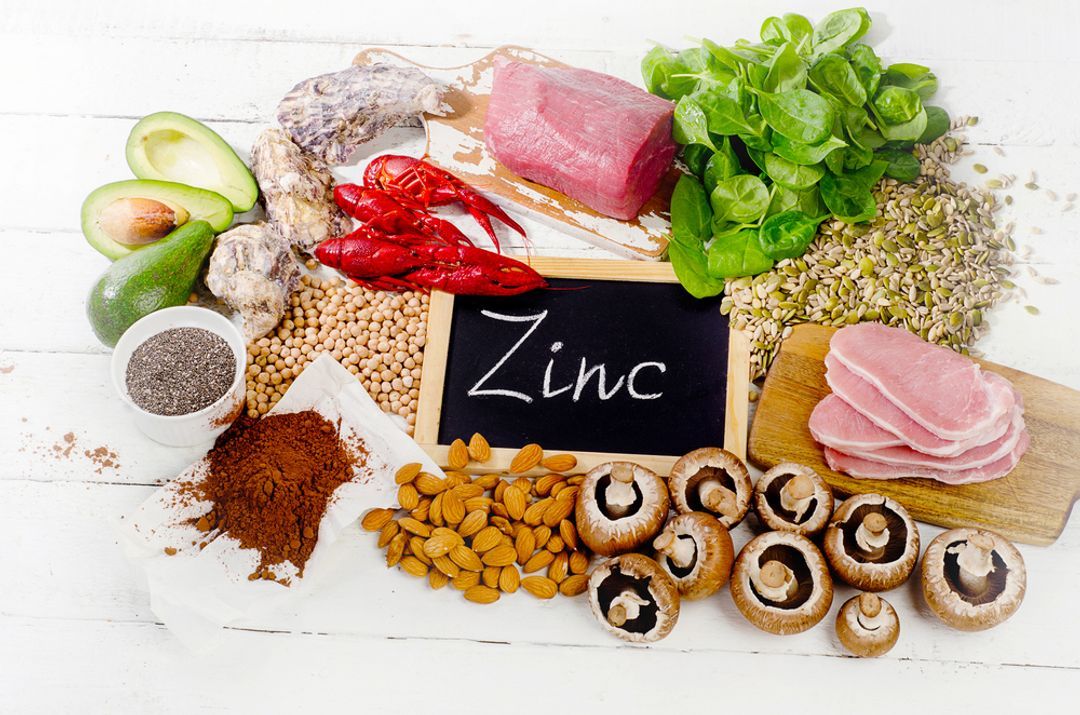My DNAge Biological Age Test Review: Is It Accurate? Should You Buy It?
Can My DNAge accurately predict my biological age? Should I buy a My DNAge biological age kit? Keep reading for a comprehensive review of My DNAge home test kit.

By The GlycanAge Team
Anytime you experience an injury, illness or infection, the immune system triggers a transient inflammatory response to heal and protect the body. While short-term inflammation is beneficial and necessary to return the body to a healthy state, it can become detrimental when it persists for a prolonged period, doing more harm than good.
Chronic inflammation causes pain and tissue damage, preventing cells and organs from functioning properly and eventually leading to cellular death. Such inflammation manifests in physical conditions, including arthritis, heart disease, allergies, certain cancers, type 2 diabetes, dementia, and others.
Diet and lifestyle factors play a crucial role in the extent of chronic inflammation in the body. Common drivers of harmful inflammation include gut issues, stress, lack of sleep, a highly processed diet, a lack of exercise, and recurring exposure to allergens and irritants.
Drinking alcohol causes toxic metabolites to accumulate in the body, circulating to organs and causing inflammation in the liver and heart. Alcohol can also disrupt the central nervous system, which is involved in regulating the body’s immune response. However, research suggests that moderate consumption of some alcohol, such as red wine, can have anti-inflammatory effects due to the abundance of antioxidants present in it. With that said, it is possible to cross the delicate line between drinking a beneficial amount of alcohol and consuming an excessive amount that produces harmful effects.
In addition to adopting healthy lifestyle habits and keeping your diet varied so that you receive all the minerals and vitamins needed, there are also vitamins and other supplements that should be considered if optimal blood levels are not met.
Such supplements aren’t recommended for everyone but should be considered on a case-by-case basis.
Prior to supplementation, it is prudent to check the levels of nutrients you consider supplementing since the research has shown that there is no additional benefit in mineral and vitamin supplementation if optimal levels are already achieved.
If you’re interested in learning about natural anti-inflammatory supplements, you’ve come to the right place. This article explores the best vitamins and other supplements to reduce inflammation in the body and improve overall health. For quick tips on reducing inflammation, check out our guide on how to lower inflammation fast.
We also have a list of the best herbs for inflammation.

Turmeric has been used as a staple cooking ingredient and medicine in India for centuries. Curcumin is an antioxidant compound found in turmeric that inhibits enzymes involved in inflammatory activity and is the most widely researched anti-inflammatory supplement on the market.
Evidence suggests this yellow spice has numerous benefits, including reducing inflammation related to diabetes, heart disease, cancer, arthritis and inflammatory bowel disease, as well as improving cognition.
Curcumin is difficult to absorb by the body on its own; taking it alongside piperine boosts its bioavailability, which is a compound found in black pepper.

Fish oil is an abundant source of omega-3 fatty acids that help to decrease numerous types of inflammation, such as diabetes, heart disease, arthritis, dementia and more.
The recommended daily intake of fish oil is 1,100 mg for women and 1,600 mg for men, which most of the population does not meet from diet alone. Oily fish, such as wild-caught salmon, mackerel, sardines and tuna, are sources of omega-3 fatty acids, as are some other foods, such as walnuts, flax and chia seeds.
Alternatively, vegans can get their dose from algae-based supplements.
 Due to its high content of a compound called allicin, garlic is a potent anti-inflammatory
Due to its high content of a compound called allicin, garlic is a potent anti-inflammatory
A 2017 study found a marked reduction in two inflammatory enzymes in adults with obesity after six weeks of receiving a daily garlic dosage.
To reap the benefits, add two to four cloves of garlic to your cooking or take an aged garlic extract supplement.
Another common herb traditionally used as an herbal medicine, ginger root has anti-inflammatory properties, with gingerol and zingerone being the two primary compounds responsible for this effect.
Additionally, ginger may help alleviate nausea, abdominal bloating, and gas and reduce pain in those with arthritis and osteoarthritis.
Up to a two-gram daily dose of ginger is considered safe; however, anything higher may produce blood-thinning effects.

Due to its high antioxidant content, green tea extract boasts extensive health and anti-inflammatory benefits. One key component of green tea is Epigallocatechin gallate, a powerful antioxidant that helps prevent oxidative damage to cells and tissues.
Green tea extract is a highly concentrated form of green tea, made by drying and crushing the tea leaves into a powder. In one study, green tea extract paired with exercise helped reduce inflammation.
Drinking two to three cups of green tea daily or taking 300 mg to 400 mg of green tea extract per day will allow you to reap the benefits. However, green tea does contain caffeine and may not be suitable for those who are caffeine-sensitive.

Bromelain is an enzyme naturally occurring in pineapples that has the same anti-inflammatory capacity as non-steroidal anti-inflammatory drugs (NSAIDs) without the added side effects.
Although most studies have been conducted on animals, bromelain has shown promise in alleviating many inflammatory conditions, including gastrointestinal and heart disease, and easing inflammation following surgery.
Apart from directly obtaining it from pineapple, bromelain may also be supplemented in the form of capsules or tablets.
Quercetin is a flavonoid mainly found in leafy greens, broccoli, berries and tomatoes, which gives them their colour. This compound also acts as a powerful anti-inflammatory, effectively treating conditions such as asthma, allergies, heart disease, pain and general inflammation.
Many supplements combine quercetin with bromelain due to their complementary effects in regard to how they work to treat conditions, specifically allergies or asthma.
People who suffer from acid reflux, intestinal dysbiosis and leaky gut may also benefit from taking quercetin supplements. The ideal dose is between 500 mg and 1,000 mg per day.
 Cannabidiol (CBD) oil is derived from the hemp plant and contains compounds that activate the body’s natural endocannabinoid system.
Cannabidiol (CBD) oil is derived from the hemp plant and contains compounds that activate the body’s natural endocannabinoid system.
These compounds, called cannabinoids, share many similarities with the substances present in hemp plants and regulate numerous bodily processes and functions without producing an intoxicating effect.
In addition to managing healthy sleep patterns and controlling anxiety and mood, cannabinoids also act as powerful anti-inflammatory agents.
In addition to oil, CBD is available in other edible and topical forms. You may benefit from trying different products to understand which type works best for you.

Derived from blue-green algae that grow in salt water, spirulina contains a powerhouse of vital nutrients, including iron, protein, magnesium, B vitamins and beta-carotene.
Some studies have shown that spirulina may prevent anaemia and reduce chronic inflammation, particularly in the elderly population. Additional studies have found spirulina effective in lowering inflammation related to type 2 diabetes and high blood pressure.
Spirulina is available in powder or tablet form, and it is generally safe to consume up to eight grams per day without any known side effects.
A natural antioxidant compound found in grapes, nuts, berries, dark chocolate and red wine, resveratrol has been widely studied for its purported anti-inflammatory benefits in chronic conditions, such as liver disease, heart disease, obesity and ulcerative colitis (UC).
 This micronutrient is only required in small amounts, yet it plays a critical role in various bodily functions and in maintaining overall health. Zinc supports the immune system by assisting in wound healing.
This micronutrient is only required in small amounts, yet it plays a critical role in various bodily functions and in maintaining overall health. Zinc supports the immune system by assisting in wound healing.
One 2014 study found that zinc reduced oxidative stress and inflammation in older adults and reduced the rate of infections by 66%. Zinc deficiency has been linked to a higher chance of developing arthritis.
You can obtain zinc from chicken, red meat, dairy and shellfish. Those with a zinc deficiency can benefit from supplementing with 8 to 11 mg per day; however, this mineral is only needed in trace amounts, and consuming more than what is required can be dangerous.
S-adenosyl-methionine (SAM-e) is a compound naturally produced in the body that plays a key role in how genes are expressed by regulating the effect that environmental factors have on modifying gene expression.
SAM-e supplements have been prescribed to people suffering from a range of inflammatory conditions, such as depression, osteoarthritis and liver problems. Some clinical trials suggest they could be equally effective as NSAIDs in relieving arthritis-related pain and inflammation.
Supplement dosage varies between 200 mg and 1,200 mg per day, depending on the condition being treated, and it can take several weeks to experience its effects.

Capsaicin is a component of red chilli responsible for giving the pepper its heat; it also contains a compound that could potentially reduce the body’s ability to feel and transmit pain.
For this reason, capsaicin is often a key ingredient in topical nerve and muscular pain relief treatments.
Alternatively, you can add red chilli peppers to your cooking or purchase a capsaicin supplement to reap its anti-inflammatory benefits.
Cat’s claw is a plant root bark used in herbal medicine to treat a variety of ailments owing to its ability to effectively inhibit the activity of a pro-inflammatory molecule called TNF-alpha.
Cat’s claw is available as a dietary supplement used for various health conditions, including viral infections, Alzheimer’s disease, cancer, arthritis, peptic ulcers and leaky bowel syndrome.
You can take a cat’s claw in capsule form in a 20-60 mg daily dose. Alternatively, you can drink it as a tea in a ratio of 1,000 mg root bark to eight ounces of water.

There are two types of vitamin A: preformed vitamin A and provitamin A, which the body converts into vitamin A. Both types are proven to support the immune system and protect the body against infectious diseases while also preventing it from becoming overactive and causing persistent inflammation.
Vitamin A protects the body from inflammation by fighting free radicals and can be beneficial in a number of conditions, including inflamed skin, some cancers and bronchopulmonary dysplasia.
Besides supplements, you can get vitamin A from foods such as liver, fish oil, eggs, leafy green vegetables, carrots and dandelions.
Several B vitamins exist, and all play a crucial role in our immune system health and inflammation. For instance, a B vitamin called folic acid has been shown to reduce inflammation when taken daily for a short period. A combination of several B vitamins (B6, B9 and B12) has also been shown to be associated with greater reductions in some markers of inflammation.
Food sources abundant in B vitamins include kale, bell peppers, mushrooms, liver, black-eyed peas, asparagus and dark leafy greens.

This essential vitamin is a powerful antioxidant as it helps neutralise free radicals responsible for causing oxidative damage to cells.
High doses of vitamin C have been administered to patients suffering from acute conditions such as severe respiratory illnesses - influenza, pneumonia and even COVID-19, to help reduce acute inflammation.
While it isn’t possible to overdose on vitamin C, doses higher than 2,000 mg may cause diarrhoea. It is also important to know that vitamin C cannot be stored in the body, which means that any that is not used when ingested is excreted via urine. Other than that, vitamin C supplements are generally considered safe and symptom-free.
It is recommended to obtain vitamin C from natural food sources due to better absorption, including a variety of colourful fruits and vegetables.
Several studies have confirmed a link between low vitamin D levels and raised inflammation; additionally, an estimated one billion people globally are deficient in this essential fat-soluble nutrient.
Vitamin D is essential for various bodily processes, including bone growth, muscle function, brain activity and calcium absorption.
It is naturally produced in the body following exposure to sunlight; however, depending on where in the world you live, this may not always be an effective way to obtain sufficient amounts of the nutrient. Supplementation may thus be an answer if there is a proven deficiency.
The recommended daily intake of vitamin D is 15 mcg. It is important not to exceed the recommended dose when supplementing, as vitamin D is fat-soluble and thus can build up in fat cells, potentially leading to toxicity.
Other than supplements, common food sources of vitamin D include fish, egg yolks, organ meats, dairy and oysters.

Another vitamin loaded with antioxidants, vitamin E also plays an anti-inflammatory role in the skin, helping to prevent UV-induced free radical damage.
Foods rich in vitamin E include olive oil, almonds, peanuts, sunflower seeds, meat, dairy, avocado and spinach. Deficiency in vitamin E may also be corrected with supplements in the form of drops or capsules.
Vitamins K1 and K2 are proven to reduce inflammatory markers involved in age-related diseases, as well as help with blood clotting and protect bone health; with that said, a sizeable part of the population is deficient in the nutrient.
Vitamin K1 can be found in leafy green vegetables such as broccoli, kale and spinach, while vitamin K2 is abundant in chicken, liver and eggs.
Herbal and vitamin supplements do show promise in helping with inflammation reduction in various chronic health conditions, though more studies are needed to support such claims and encourage a more targeted use.
As we have seen, chronic inflammation is a problem described in many chronic health conditions. Quantifying it can thus be of big help in its management and prevention. The GlycanAge biological age test does exactly that - it measures chronic inflammation in the body, based on how one’s biological age is calculated.
 Genes, lifestyle choices and the natural passage of time all affect one’s biological age.
Genes, lifestyle choices and the natural passage of time all affect one’s biological age.
The test can thus be used to help you understand what lifestyle choices are right for you and help you implement necessary changes to effectively increase your health span and even reverse the ageing process.
Once you’ve ordered your home testing kit, all you need is to provide a small blood sample and mail it back to the lab for analysis. It’ll take 3-5 weeks to complete comprehensive tests and return a personalised report on your results.
You will also receive complimentary 1-1 consultations with a scientist and/or healthcare professional to understand your results and make a plan to improve your overall wellness as you get older.
With various price points and payment plans available, there is an option to suit each person who wants an accurate, reliable and affordable way to determine their health state. Start your wellness journey today by ordering your GlycanAge home testing kit.

By The GlycanAge Team

Start or continue your GlycanAge journey
Don’t be afraid to reach out to us and ask questions, provide commentary or suggest topics.
Other articles you may like:
Can My DNAge accurately predict my biological age? Should I buy a My DNAge biological age kit? Keep reading for a comprehensive review of My DNAge home test kit.
 By The GlycanAge Team
By The GlycanAge TeamHow do you test your biological age? Are DNA age tests accurate? Find out answers to these questions and more by clicking here.